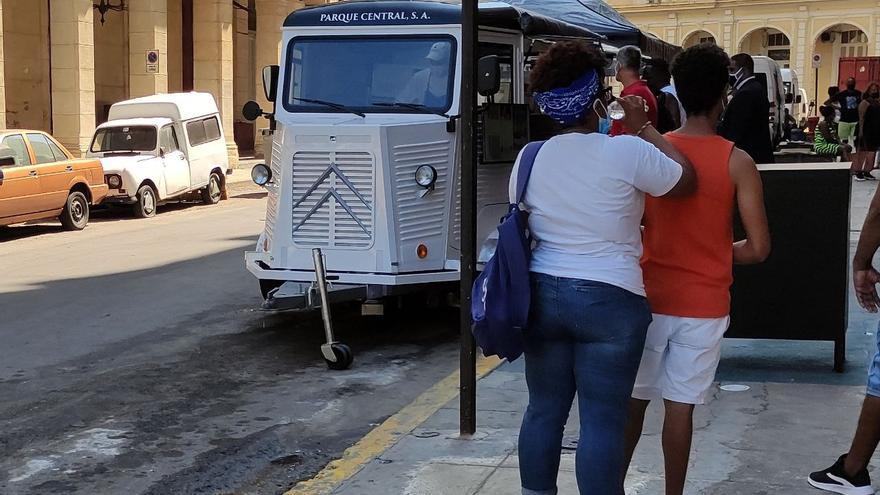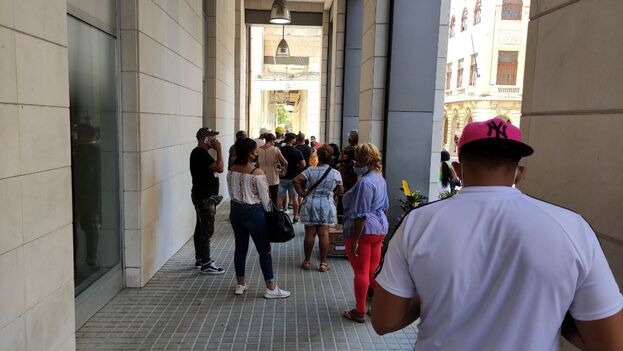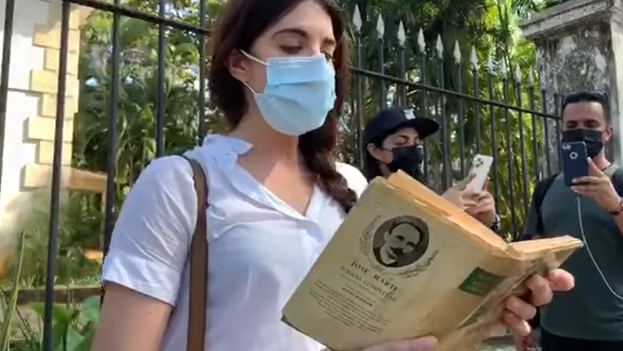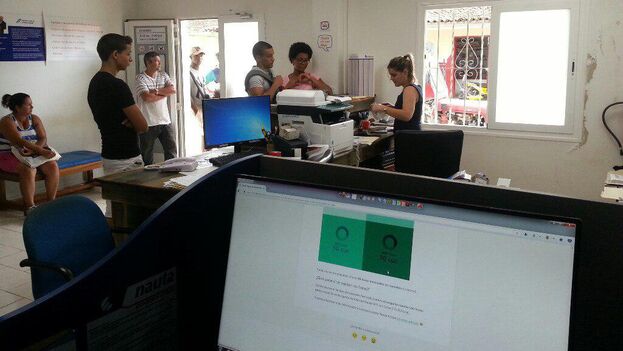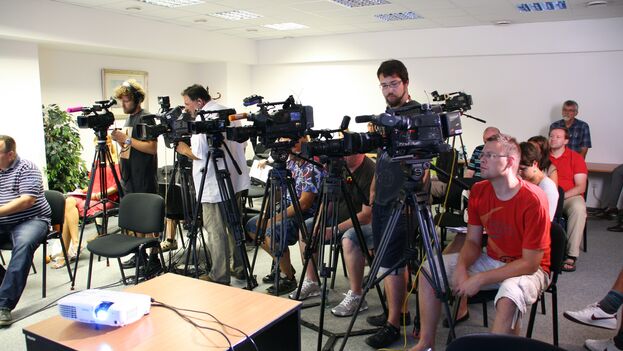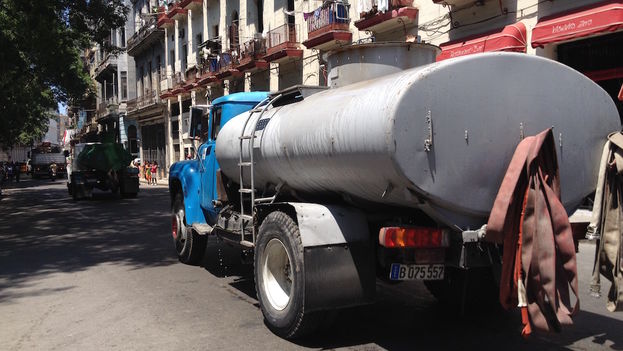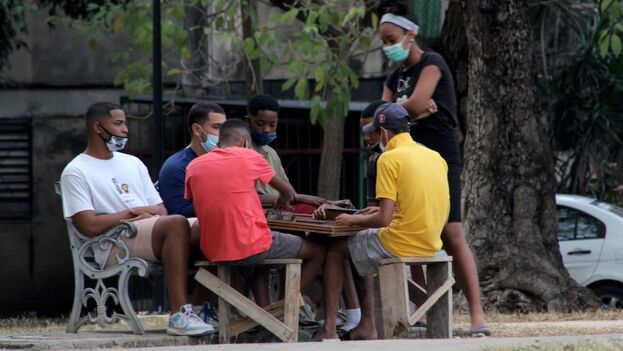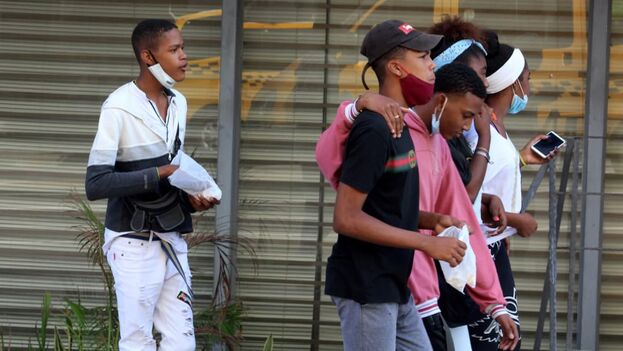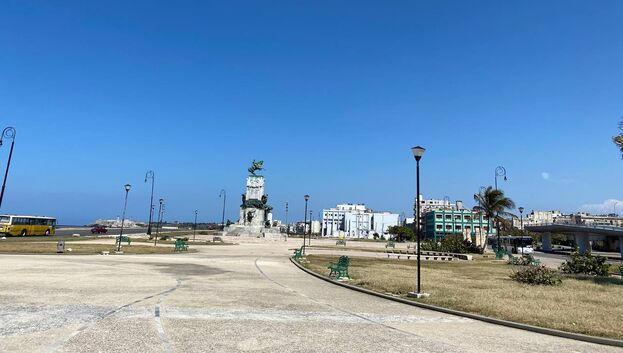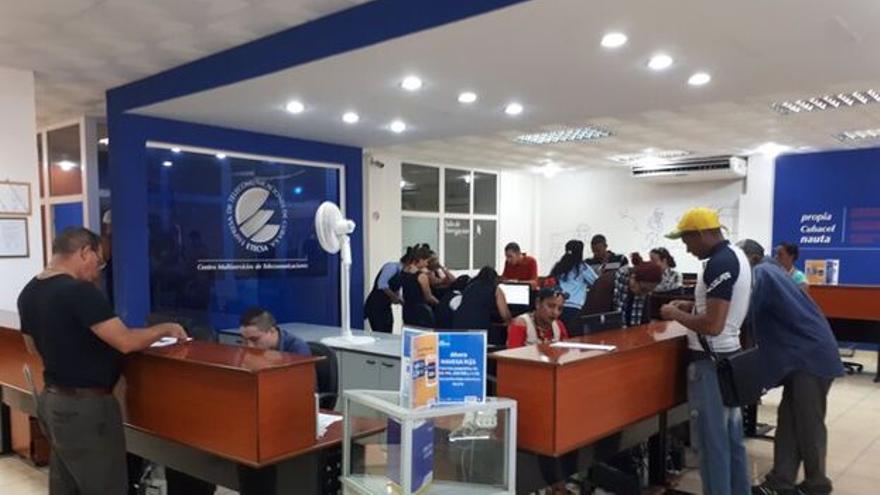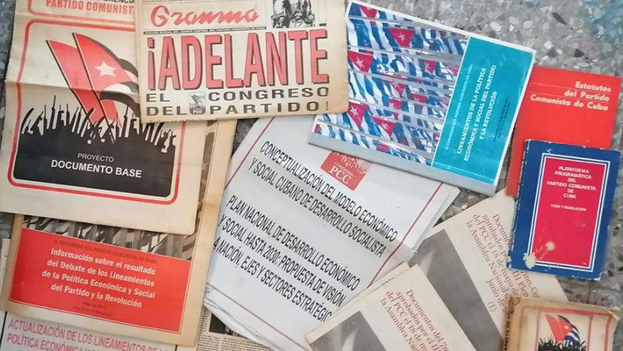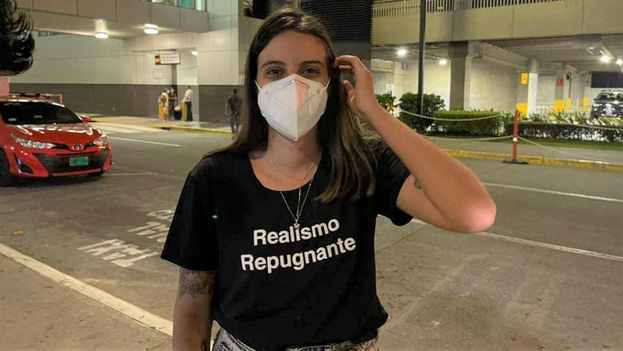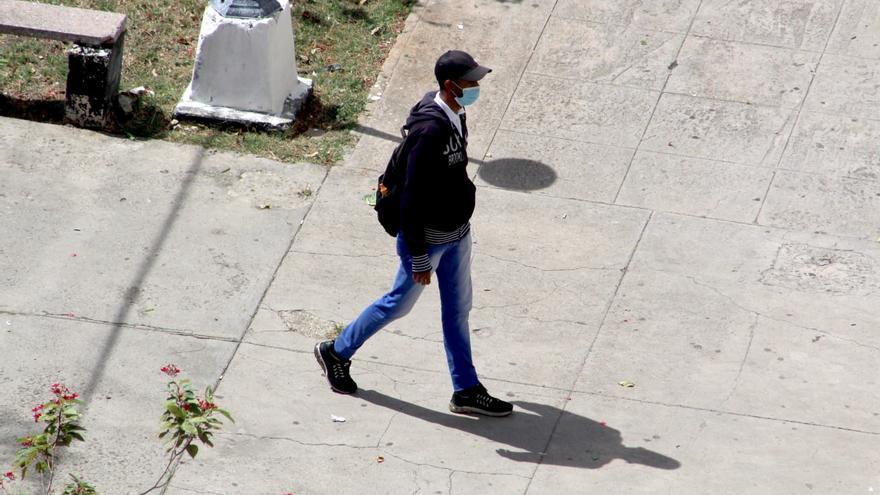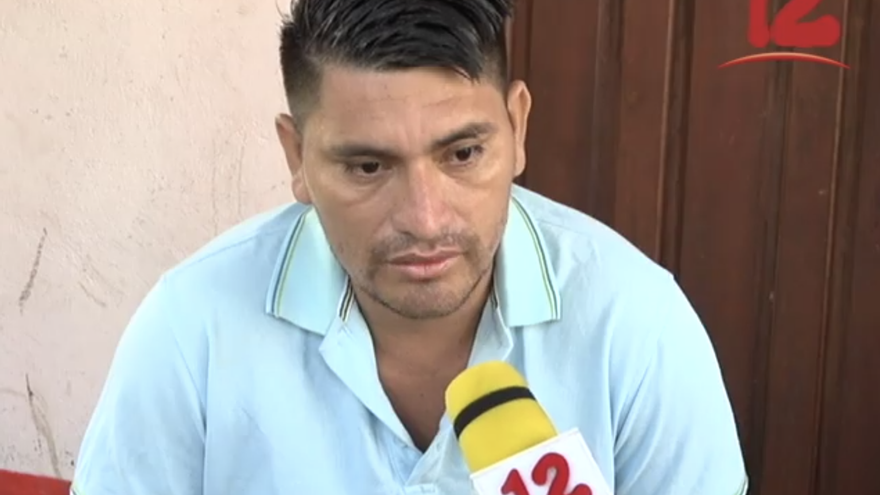
![]() 14ymedio, Eloy M. Viera Moren, Madrid, 20 March 2021 — A video clip posted on the internet a few days ago shows three young non-commissioned officers wearing uniforms of the Ministry of the Interior performing a song in response to the song Patria y Vida (Homeland and Life). The origin cannot be specified, but judging by the uniform of one of them, even equipped with the regulation whistle with its chain to the epaulette, they certainly seem to be members of the forces of law and order. Such an eyesore would not deserve a comment if it were not for the initial phrase: “Sixty years of this great nation; 62 of this Revolution”.
14ymedio, Eloy M. Viera Moren, Madrid, 20 March 2021 — A video clip posted on the internet a few days ago shows three young non-commissioned officers wearing uniforms of the Ministry of the Interior performing a song in response to the song Patria y Vida (Homeland and Life). The origin cannot be specified, but judging by the uniform of one of them, even equipped with the regulation whistle with its chain to the epaulette, they certainly seem to be members of the forces of law and order. Such an eyesore would not deserve a comment if it were not for the initial phrase: “Sixty years of this great nation; 62 of this Revolution”.
First, dressing up as police to intimidate by this music those Cubans who think differently is absolutely anti-national, and sounds more like the dogs in George Orwell’s novel Animal Farm, who disappeared as puppies and then became the dangerous bodyguards of the pig Napoleon when he came to power.
In order to define Cubanness, it is indispensable to turn to Fernando Ortiz. Among his works and articles on the subject, he conceived it as a “condition of the soul” that requires “the conscience of being Cuban and the will of wanting to be Cuban”; no other reference to place of residence, ideological preference or political thought. Likewise, he denounced that “our synthetic intellectual characteristic is ignorance” — an epithet more characteristic of the young authors of the song, to say the least. continue reading
On March 15, the same day on which the laughing stock was released, another piece by Alexis Valdés was premiered, sung as a duet with Willy Chirino, accompanied by a group of Cuban musicians, including a brief performance by composer and performer Arturo Sandoval. As far as I know, the idea arose during the presentation by these and other artists sponsored by several members of the European Parliament in order denounce the hardships of the Cuban people. Sixteen days later it was released, despite the urgency, a true offering to the nation from the feelings of quality and enduring.
With a fusion of genres, it has, however, the flavor of a son Cubano. Sandoval’s virtuosity in his brief solo spiced up the performance in the best tradition of his brilliant predecessors Félix Chapottín, the Louis Armstrong of the son Cubano, or Julio Cueva, who made Paris vibrate with the conga.
All of them outstanding trumpet players, Chapottín had no known political affiliation, Julio was a consistent communist (by the way, he died in Havana in 1975, submerged in anonymity) and Sandoval considers Marxism to be one of the greatest misfortunes suffered by this country in its history. All of them are Cuban and qualify among the most apt to express Cubanness through music.
Our oligarchs, masters of populism, have been capable of erasing genuine exponents of popular music such as Sandoval or Chirino from broadcasting, just for thinking differently. When to this is added an “excessive professionalism” (I quote Ecured, the Cuban official platform), the musician becomes absolutely unknown. Such a qualification is found in the page dedicated to Aurelio de la Vega, universally known as composer, instructor and orchestra conductor, described as “colossus of Cuba and the world” in the Diario Las Américas.
With more than 90 years of active life, he has been forced to spend 62 of them in exile because he considers that Cuba suffers from “a totalitarian communist government with a capitalist business system.” The criticism of his professionalism is due to the cultivation of atonalism as a tendency in many of his compositions, as if the work of Harold Gramatges, who held prominent positions in the communist leadership of culture, were not equally complex.
The ruckus motivated by Patria y Vida has generated, on the one hand, a significant amount of responses from the government, mostly marked by mediocrity; and on the other hand, the aforementioned composition, which was made with skill and professionalism. Disregarding likes, dislikes and even “data mining”, this ideological battle has been lost by the Cuban government.
The reason is that talent cannot be forced (not even with money) to generate lasting works, even less from a false and insubstantial patriotic feeling. An eloquent testimony of this nervousness is the newspaper Granma’s announcement, 25 days after the premiere of Patria y Vida, about the inclusion of the topic “political-ideological subversion on the internet” among the issues to be discussed at the Eighth Congress of the Communist Party of Cuba.
As genuine an expression of Cubanness is the work of the communist Julio Cueva with his Tingo talango, as the most elaborate of Arturo Sandoval, to the definitely atonal and complex of Aurelio de la Vega. We are all equally Cuban by the will of wanting to be so, although motivated by a similar diversity of possible worldviews. For the time being, with much good Cuban music still to be heard, I say goodbye, along with Valdés and Chirino: “I am Cuban, and no one will be able to take away my being Cuban”.
Translated by: Hombre de Paz
____________
COLLABORATE WITH OUR WORK: The 14ymedio team is committed to practicing serious journalism that reflects Cuba’s reality in all its depth. Thank you for joining us on this long journey. We invite you to continue supporting us by becoming a member of 14ymedio now. Together we can continue transforming journalism in Cuba.

